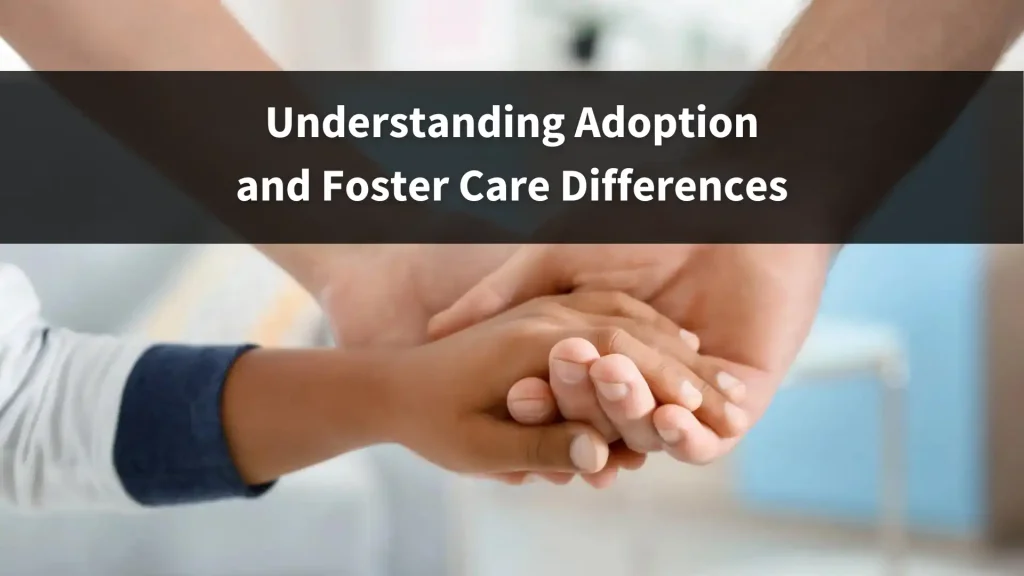Adoption and foster care are not the same thing in Texas. If you’re thinking about fostering or adopting a child, or if your child is in the foster care system or was adopted by someone else, knowing the differences between these legal frameworks is crucial for understanding your rights. An experienced Austin adoption attorney from Smith & Bledsoe Family Law can help.
Adoption vs. Foster Care
In Texas, adoption and foster care serve distinct purposes within the child welfare system. Adoption is a legal process that permanently transfers parental rights and responsibilities from the biological parents to the adoptive parents. After the adoption is finalized, the child becomes a permanent, legal member of the adoptive family with all the rights that come with it.
The intent behind foster care is that it is a temporary arrangement for children who cannot live with their biological parents due to safety concerns. Foster care provides children with a safe, stable, and nurturing environment until they can return to their biological families or find a permanent home through adoption.
Permanent vs. Temporary Custody in Texas
The primary difference between adoption and foster care is the nature of the custody arrangement. Adoption grants permanent custody to the adoptive parents, while foster care grants temporary custody.
According to the Texas Family Code, “adoption creates the parent-child relationship between the adoptive parent and the child for all purposes.” This means that the adoptive parents have all legal rights and responsibilities for the child, including decision-making authority regarding the child’s education and healthcare.
The ultimate goal of foster care is the reunification of the child with their birth family whenever possible. While a child is in foster care, the state has legal custody of the child, and the foster parents must follow guidelines set by the Texas Department of Family and Protective Services (DFPS). Some of the requirements for foster parents include:
- Providing adequate sleeping space for the child
- Permitting fire, health, and safety inspections of the home
- Attending annual training required by the Child Placing Agency
Parental Rights in Foster Care vs. Adoption
Adoption terminates the biological parent’s rights to the child and grants those rights to the adoptive parents. However, the adoption process isn’t the only cause of termination of parental rights in Texas. There are both voluntary and involuntary methods by which the state can terminate parental rights, leaving a child open to adoption.
In foster care, the biological parents of the child maintain their parental rights unless a court decides otherwise. The foster family does not have the same legal rights as adoptive or biological parents. They must provide care and support for the child in ways that align with the biological parent’s wishes and the state’s mandates.
Foster Care vs. Adoption Financial Support
Foster parents in Texas receive financial support from the state to help cover the costs of caring for a foster child. These benefits vary based on the child’s needs, as outlined by the Texas Department of Family and Protective Services. Children with more specialized and intensive care require additional financial support from the state.
Adoptive parents, on the other hand, may receive financial and medical assistance if the child in their care qualifies. According to the Texas Family Code, this financial support includes a $150 monthly subsidy for medical coverage premiums. If the child has special needs, the adoptive parents may be able to apply for additional financial assistance and Medicaid coverage.
Foster Care Reunification Goals
A key goal of the foster care system in Texas is to reunify children with their biological families whenever it is safe and appropriate to do so. Texas law emphasizes the importance of the child’s best interest when considering all matters regarding the family.
Some of the factors the court will look at when determining the best interest of the child are:
- The child’s age and physical and mental condition
- The frequency and nature of foster care placements
- Whether the child has been the victim of harm
- Whether there is a history of abuse to the child or other family members in the home
- Whether there is a history of substance abuse in the home
- The willingness of the child’s parents to seek and complete counseling
- The availability of a social support system for the child
On the other hand, the goal of adoption is not to reunify the child with their birth parents. Adoption occurs when the best interest of the child is for them to be in a permanent and stable home regardless of biological relation.
Adoption Process and Requirements in Texas
The adoption process in Texas involves several steps, beginning with determining the child’s eligibility for adoption. The Texas Family Code outlines a few circumstances in which children may undergo adoption, including if the state terminated their parent-child relationship with their biological parents.
To adopt a child in Texas, adoptive parents must meet a few basic requirements laid out by the Department of Family and Protective Services. They must also attend an information meeting and undergo special training. Finally, they must pass a home study performed by a caseworker to determine whether the parents can meet the child’s needs.
Challenges of Adopting a Foster Child
Adopting a foster child can be challenging due to the trauma the children within this system sometimes have experienced. Many of these children have suffered from abuse or neglect, which can result in behavioral, emotional, or health issues. Adoptive parents must be able and willing to address these challenges and provide support.
If you are a foster parent looking to adopt your foster child, the adoption process may be easier since you and the child are already familiar with each other. You will have to file a petition to adopt with the court, and once approved by a judge, the adoption will be final. At this point, Child Protective Services will close their case, and the Department of Family and Protective Services will remove its involvement with your family.
Austin, Texas, Family Law Attorney
If you want to adopt a child in Texas, call Smith & Bledsoe Family Law at (512) 277-3166 or contact us online for a free case evaluation with one of our experienced attorneys. We’ll help you understand your eligibility and the legal implications of your decision to provide a child needing a home with a loving family. Learn from our success stories and know why you should trust our law firm with your case.

